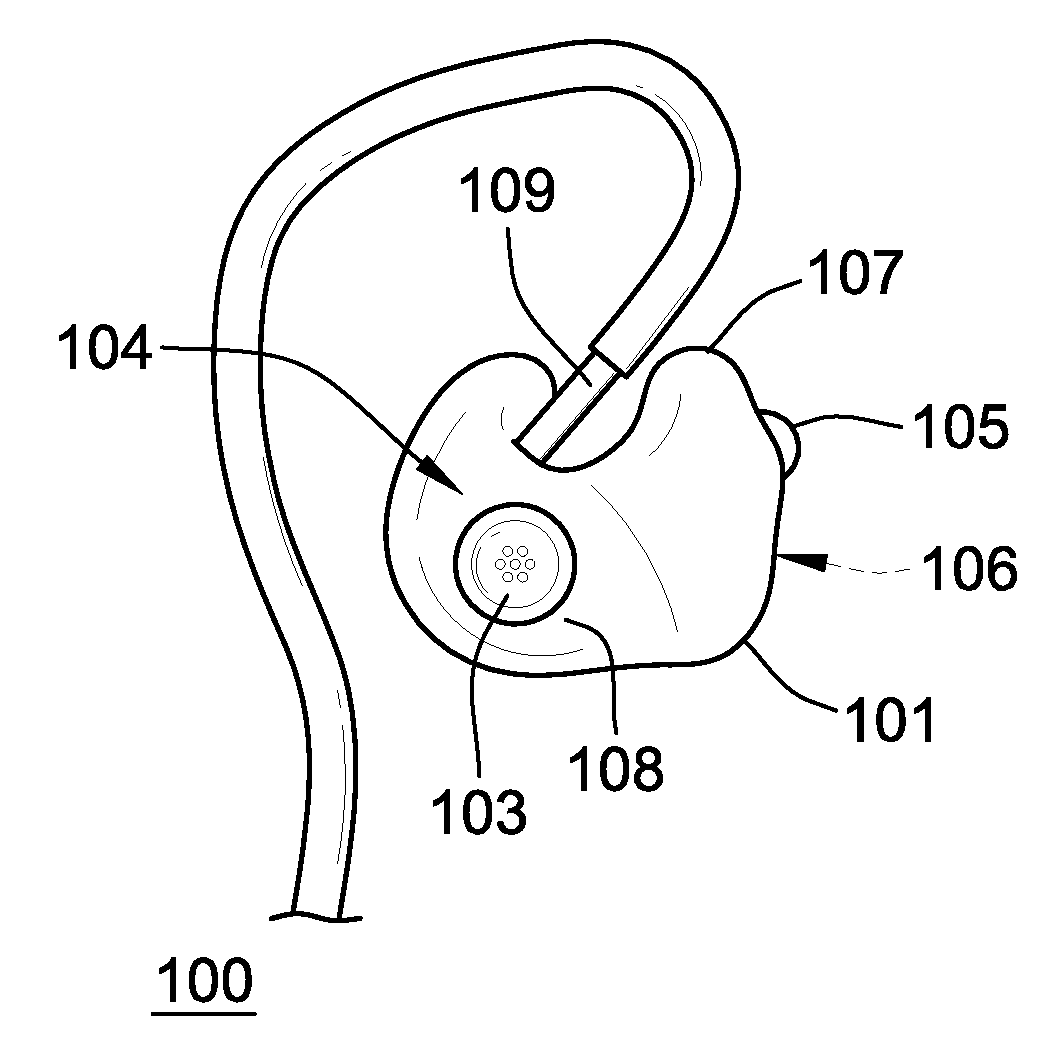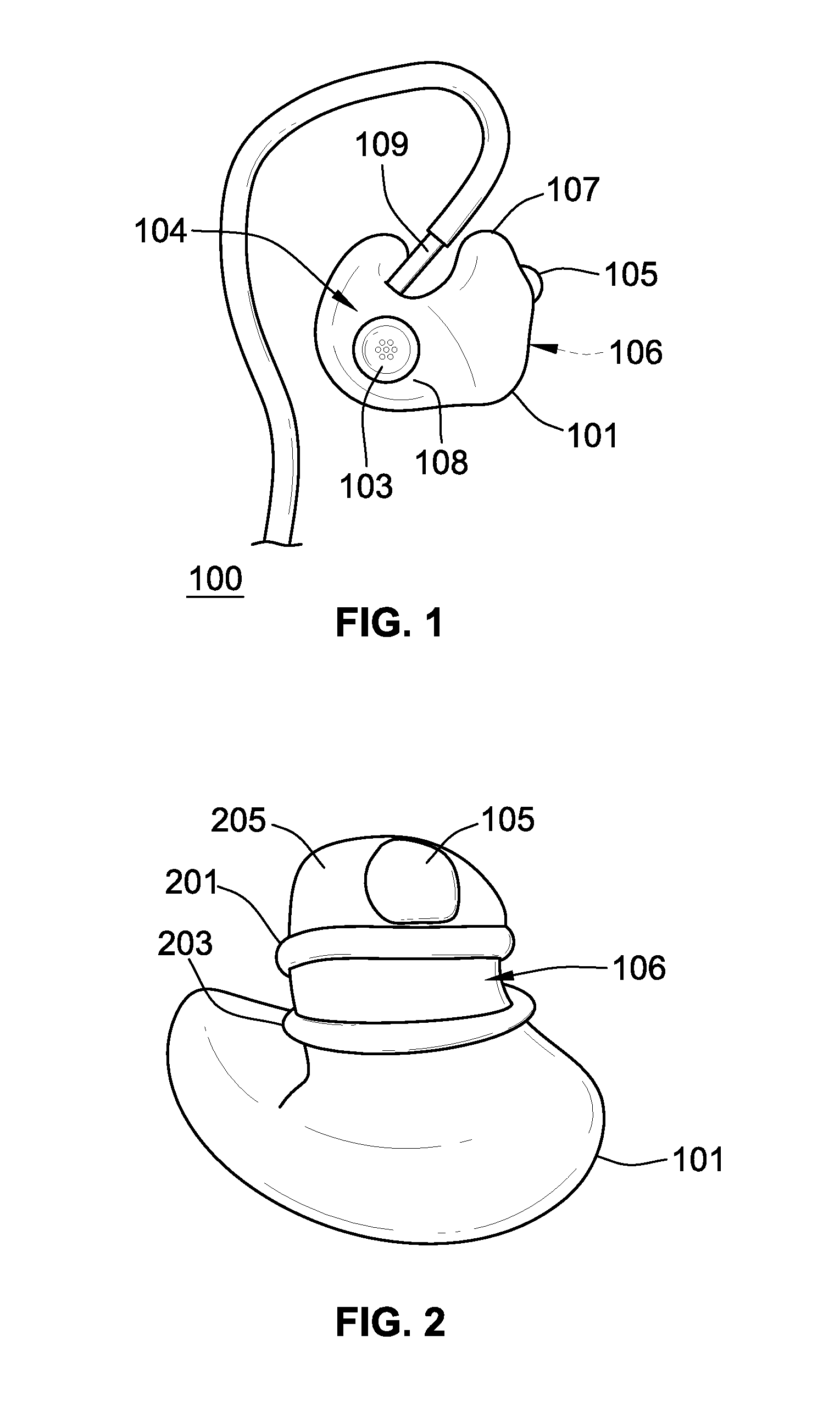Custom in-ear headset
- Summary
- Abstract
- Description
- Claims
- Application Information
AI Technical Summary
Benefits of technology
Problems solved by technology
Method used
Image
Examples
Embodiment Construction
[0052]FIG. 1 shows a custom in-ear headset 100 comprising a headset housing 101 having a proximate housing portion 104 and a distant housing portion 106. The distant housing portion, as indicated by arrow 106, is generally the part being closest to the user when the in-ear headset 100 is worn by the user while the proximate housing portion, as indicated by hashed arrow 104, is generally the part being furthest away from the user when the in-ear headset is worn by the user. The proximate housing portion 104 is terminated by a closed shell face 108 that point outwardly of the user's ear when the custom in-ear headset 100 is mounted therein. The distant housing portion 106 has a tapering outer contour terminating in a tip 205 (refer to FIG. 2) also comprising a sound outlet (not shown) of a miniature speaker (not shown) for conveying sound pressure to the user's substantially occluded ear canal. The tip 205 is accordingly the most distant portion of the headset housing 101 and generall...
PUM
 Login to View More
Login to View More Abstract
Description
Claims
Application Information
 Login to View More
Login to View More - R&D
- Intellectual Property
- Life Sciences
- Materials
- Tech Scout
- Unparalleled Data Quality
- Higher Quality Content
- 60% Fewer Hallucinations
Browse by: Latest US Patents, China's latest patents, Technical Efficacy Thesaurus, Application Domain, Technology Topic, Popular Technical Reports.
© 2025 PatSnap. All rights reserved.Legal|Privacy policy|Modern Slavery Act Transparency Statement|Sitemap|About US| Contact US: help@patsnap.com


